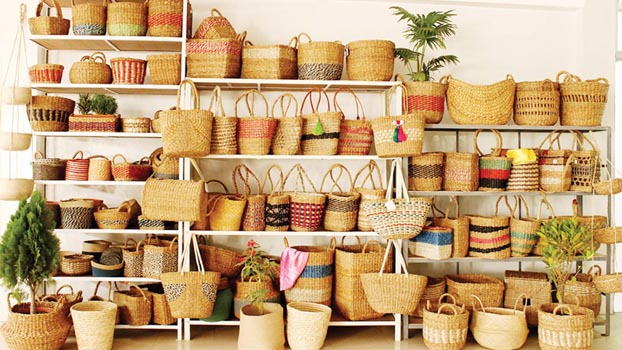Jute may be a blessing for the country again
New initiative on to rejuvenate jute sector

In the pandemic situation when ferocity of COVID-19 has created the worst scar in all export-oriented sectors, jute will turn out to be a blessing for the country again as its demand sees a surge in the global market despite corona crisis.
As part of its intensified move, the government has extended all support along with cash incentives to ensure product diversification, use of modern machinery and equipment to boost this sector.
The government will set up advanced technology-based jute and jute seeds production units for increasing the output of high-quality jute and obtaining self-sufficiency in the production of jute seeds, a high official of textiles and jute ministry said.
He said the government plans to shut down the country’s all public jute mills to rejuvenate this sector as the government has incurred huge losses over the time from public jute mills.
The government is going to reopen mills under the public-private partnership arrangement soon with modern technology, he added.
Economists said the demand for jute and jute products has increased due to the reduction in the use of polythene in the world in response to the calls of environmentalists.
It may also contribute to become the new growth driver of the country’s economy, they added.
However, the export earnings from the jute and jute-made goods stood at $882.3 million during the last fiscal year, 2019-20, which is 8.10 percent more than the earnings of the previous fiscal, according to the Export Promotion Bureau (EPB).
It is also higher than the strategic export target of 7 percent during the time. Textile and Jute Minister Golam Dastigir Gazi said the country’s jute sector has occupied the second top position in last fiscal year for the first time in the export trade by beating the leather sector.
The textiles and jute minister also said the government will extend all sorts of support for boosting the production of jute and jute goods, aiming at building a pollution-free Bangladesh.
“The Textiles and Jute Ministry will work sincerely for the proper use of the stimulus fund announced by the government in expanding the jute industry and motivating the jute growers,” he said.
The minister said the Jute Department is now implementing a programme titled ‘Advanced Technology-based Jute and Jute Seed Production and Extension Project’ in 230 upazilas of 46 districts in a bid to increase the production of high-quality jute and attain self-sufficiency in the production of jute seeds in the country.
He said that shutting down all the public sector mills in the country was a part of the government’s development approach.
President of Bangladesh Jute Diversified Products Manufacturers and Exporters Association Rashedul Karim Munna said the potential of jute is endless due to the production of multiple products.
Even if it can capture 10 percent of the potential international market, it is possible to earn Tk 50,000 crore a year with this jute alone, he added.
Making billions of dollars a year from the jute industry next year is not a dream at all, he said adding, for this, the country has to set up modern technology-based factories.
In addition, in order to ensure jute-goods entry into the international market, it is necessary to increase research and create skilled manpower in the country to manufacture jute products as per the demand of the market.
Besides, a large investment is required to increase the mechanical facilities, Munna said adding that, “For this, the government needs to make the private sector strong as well as reorganize the state-owned factories and institutions.”
Experts said, jute is turning out to be an important natural and environment-friendly raw material for multifarious uses.
The demand for jute is increasing both at home and abroad against the backdrop of the global awareness towards ‘green’ solutions, they added.
It is high time to focus on new and potential export items, like jute and jute goods in order to come out of overdependence on exports of readymade garments, they mentioned.
The export earnings from the jute and jute-made goods witnessed a healthy growth during the last fiscal despite the ongoing worldwide shutdown due to the coronavirus pandemic.
The earnings from this sector secured second place after the readymade garments (RMG) pushing down the leather sector to the third place for the first time since losing its glory as the most export earning product as well as the golden fibre.
Export earnings from most of the products, including the RMG, of the country have shown negative growth during the time.
The country’s overall export earnings stood at around $33.67 billion in the last fiscal, which is 16.93 percent less than the previous fiscal.
On the other hand, the country’s earnings from readymade garment (RMG) exports witnessed a negative growth to hit $27.94 billion during FY20 against $28.49 billion during the same period a year earlier, posting a 18.12 percent negative growth.
The earnings also missed target set for the period by 26.83 percent.
Abdus Salam Murshedy, President of Bangladesh Exporters Association, said, “The growth in export earnings in the jute sector towards the end of the financial year is definitely a positive development. This is a positive message as well as good news for the country.”
He urged the government to recruit skilled people in this sector and diversify products and markets to secure the export earnings.




